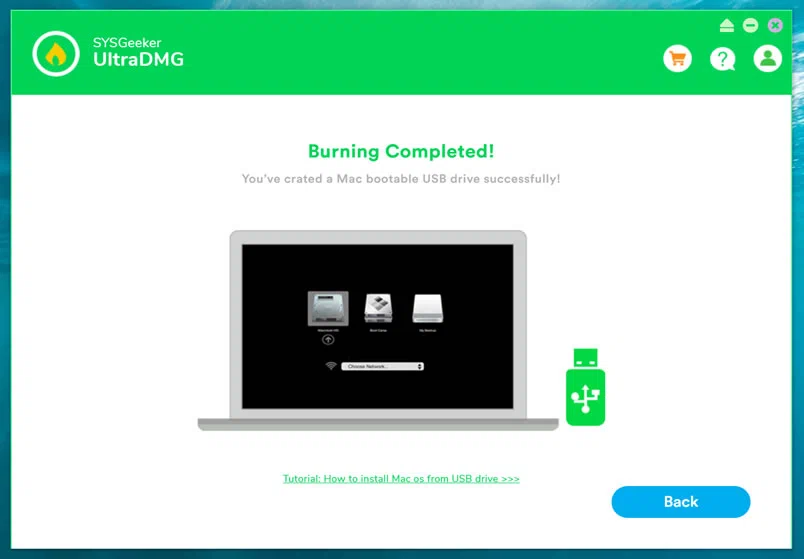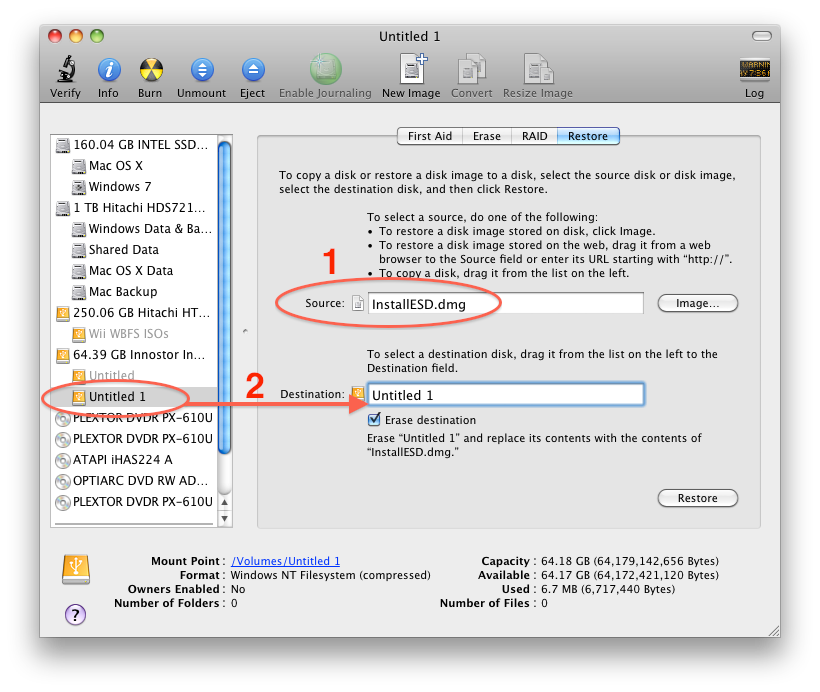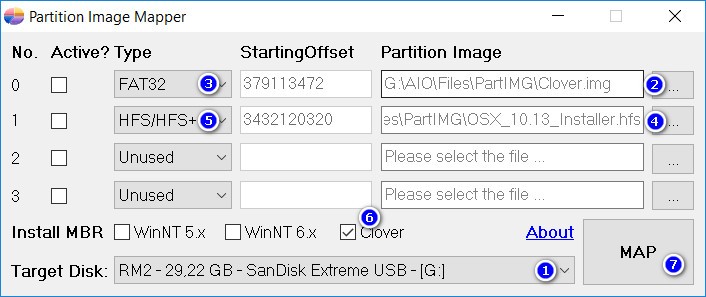- Run AnyBurn, then click 'Burn image file to disc'. The 'Burn image file' page will show. You can select the source DMG file by clicking 'Browse' button. The burning drive list will list all writers connected to the computer, please select the correct one from the list if multiple writers are connected.
- WizDMG offers an intuitive interface with no clutter and full functionality to handle DMG files. Apart from burning such disk image files to DVD/CD or USB, it also gives you edit options where you can add and remove files from within the DMG file, rename DMG files and even create DMGs from files and folders on your desktop.
- The DMG files normally contain program installation files for Apple system and applications, but they can also be used to hold compressed files. Method 3: How to Burn a DMG File to USB in Linux. The process of burning a DMG to USB in Linux is a little more complicated since it requires converting the file to an ISO before burning it to a drive.
Apr 23, 2021 Burning an ISO image to a USB drive will erase everything on the drive! Before continuing, check that the USB drive is empty or that you've backed up any files you want to keep. From the Device drop-down at the top of Rufus, choose the USB storage device you want to burn the ISO file to.
Learning how to create a bootable macOS installation disk can be helpful in a variety of situations. Rather than download and install a new OS from Apple's servers each time, it can be used for multiple installations on different machines. It can also help in situations where the operating system is corrupted or installation from app store shows errors.
To create a bootable macOS installation disk, you have to burn the DMG file to a USB drive as CD/DVD is not available for Mac computers. Here's how to do it from text commands and using a purpose-built software called WizDMG. You will first need to download the DMG file for the macOS version you wish to install. For example, if you want to create a bootable macOS Mojave installer, you will need the DMG file for macOS Mojave. Once the file has been downloaded to your PC, you can proceed with one of the bootable disk creation methods shown below.
Method 1: How to Create Bootable USB Installer for Mac via Commands
macOS (formly named Mac OS X) is just a variant of popular Unix based operating system. This means a lot of daily and advanced tasks on Mac can be done via text commands such as creating bootable USB installer for Mac. However, this could be a lot of challenges if you had no clue about commands and I suggest taking a look at the other solutions in this post to avoid messing up the computer with the wrong commands.
Step 1. Search macOS name in app store (Mojave, High Serria, EI Capitai). Click 'Get' button to download the installer image on your Mac. The downloaded file will be located in Application folder.
Step 2. When the download is completed, the installation windows opens automatically, just close the window and go to Application folder. You will find a file started Install, such as Install macOS Majave.
Step 3. Now connect an external flash drive with more than 16G free space. And backup the data in that USB drive as the installer erase all content from it. Open Disk Utility app and format the USB drive with APFS or Mac OS Extended.
Step 4. Open the Terminal app and copy-and-past the following commands to make a booatble USB installer from macOS image:
For Majove: sudo /Applications/Install macOS Mojave.app/Contents/Resources/createinstallmedia --volume /Volumes/MyVolume
For High Serria: sudo /Applications/Install macOS High Sierra.app/Contents/Resources/createinstallmedia --volume /Volumes/MyVolume
For EI Capitan: sudo /Applications/Install OS X El Capitan.app/Contents/Resources/createinstallmedia --volume /Volumes/MyVolume --applicationpath /Applications/Install OS X El Capitan.app
Step 5. Input the admin password when being prompted. And wait for the booatable disk being created. When it is done successfully, you will receive a message shown in above screenshot.
Unconfortable with text commadns and prefer doing it in a simple way? The second suggestion is more user friendly!
Method 2: How to Make Bootable USB from macOS with WizDMG
WizDMG fills a huge gap in Windows not supporting DMG files. It is a desktop utility supporting Windows and Mac. It allows you to directly burn DMG files to disk in order to create a bootable macOS Mojave installer or a boot disk for any macOS version.
WizDMG offers an intuitive interface with no clutter and full functionality to handle DMG files. Apart from burning such disk image files to DVD/CD or USB, it also gives you edit options where you can add and remove files from within the DMG file, rename DMG files and even create DMGs from files and folders on your desktop. This software application has been created for novice users as well as experts. It is easy to use, has a very high burn success rate and will help you create a bootable macOS installer in no time. Follow the instructions below:
Step 1Install WizDMG
Download WizDMG from the official website and install it on your PC. Launch the program and select the 'Burn' option in the main interface.

Step 2Create Bootable USB from macOS Install Image
Click on Load DMG to import the macOS installation file into the application. Insert a USB (16G free space) and click on the 'Burn' button next to the appropriate media type.
The important thing to remember here is that you now know how to create a macOS installer in Windows. There aren't a lot of options out there because of the compatibility issues between Mac and Windows environments. That means converting DMG to ISO and back again to DMG leaves the door open for corrupted files and incorrectly burned bootable media, which defeats the whole purpose because it might not even work in the end.
Method 3: Create macOS High Serria/Mojave Bootable USB on Windows 10/7
Another way to create macoS bootable disk on Windows is using a tool called DMG2IMG along with Windows command prompt. It requires a bit of a workaround, but even novice users can learn to burn a DMG file to a disk to create bootable media for a macOS installation. Just make sure you follow the instructions below carefully.

Step 1. Download DMG2IMG and install it in your Windows PC. Open File Explorer and go to the folder containing the DMG2IMG program, then right-click and select 'Open command windows here.'
Step 2. Type the following command and hit Enter: dmg2img [sourcefile.dmg] [destinationfile.iso]
Step 3. Now that the DMG file has been converted to ISO format, you can use the following command to burn it to a disk. Before that, insert a disk into the optical drive: isoburn.exe /Q E: 'C:UsersUsernameDesktopdestinationfile.iso'
Step 4. This command utilizes the Windows native disk image burner to burn the ISO to the disk in your optical drive. The ISO file can't be used directly in macOS, but it can be mounted as a virtual drive. Once you do this, you can convert it back to DMG using Disk Utility in Mac. You can then use this as your bootable macOS installer.
As you can see, this is a bit of a workaround because DMG files aren't natively supported in Windows. Likewise, ISO files aren't fully supported in macOS. However, you can use this method to create a macOS installation disk in Windows. If you want a much simpler solution, then review the next method shown here.
Summary
If you ask us how to create a bootable macOS installation disk, this is the method we recommend. There's no confusing command line work involved, you don't need a bunch of additional software utilities to get the job done, and the high accuracy of the application ensures that you won't be wasting disk after disk trying to burn the installation media for macOS onto a disk. Use WizDMG as a quick and painless way to create a macOS installation disk in a very short time.
Related Articles & Tips

A DMG file is essentially Apple's format for mountable disk images in Mac OS X (macOS) computers. When opened, it mounts a virtual disk on the computer, and is normally used for installing new applications. DMG file is usually encrypted and compressed, unlike ISO, which is an uncompressed disk image format.
While DMG files are usually downloaded from the Mac App Store, they can also be burned to a USB disk when you want to install a utility on another machine. In such cases, you will need to create a bootable macOS disk or burn it to a USB flash drive so it can be used on another system for OS installation. This article shows you four different ways to burn .dmg file on Windows PC or Mac.
P.S if you did not download the macOS dmg file, here are a few useful links to download Big Sur, CatalinaMojave and High Serria.
Part 1: How to Burn DMG to USB on Mac for Free (Disk Utility)
The native disk image utility on Mac is ideal for burning a DMG to a USB drive. Once you burn the file to the drive, this drive can be used to install the associated application on any other Mac system. The process may vary slightly depending on which version of Mac OS X your computer is running, but the steps below will give you a fair idea of how the process should be carried out.
Step 1: Go to Applications >>Utilities >>Disk Utility and click on it to launch the program.
Step 2: On the left, you'll see all the available drives. Insert the USB drive and watch as it appears on that list.
Step 3: Now open a Finder window and locate your DMG file. Drag and drop it under the drive names in the Disk Utility app.
Step 4: Select the file, and then click on 'Burn' in the same window. In the popup that appears, select your destination drive, which is the USB flash drive you want to burn the DMG file to. Click 'Burn' in the popup window.
Once the process is complete, remove the USB stick and use it to install the application associated with that DMG on any other Mac computer.
Pros:
- Totally free.
- No need to install other apps.
Cons:
Burn Dmg Image To Usb Mac
- Not available on newer macOS (Mojave and later).
- USB may not be bootable for certain dmg files.
Part 2: How to Burn DMG to USB on Windows PC & Mac (Bootable)
UUByte DMG Editor is a versatile application that can help you burn DMG files to a USB drive on Windows PC and Mac. The interface is very simple, and all you need to do is click a few times and the job is done for you. DMG Editor gives you the option of creating macOS bootable USB drive for installation, and is the perfect tool for transporting your DMG files in their ISO avatar. Assuming you have a USB drive with enough capacity, it can hold several programs.
DMG Editor doesn't require any technical expertise because it is specifically designed for new users who may not be comfortable handling disk images. All the hard work is done behind the scenes, and the layout is intuitive enough for any novice to figure out what to do. For first-time users, here's a small guide for using it to burn .dmg file to a USB drive.
Key Features of DMG Editor
- Make USB bootable after burning to USB.
- Able to edit DMG file and recreate it.
- Also support burning to CD or DVD disc.
- Easily extract files from DMG file.
Step 1: Install UUByte DMG Editor
Install DMG Editor after downloading it from the official site. Insert your USB drive into a free port.
Step 2: Insert USB Drive and Import DMG File
Launch DMG Editor and select the 'Burn' option, which will take you to a new window.
Step 3: Start Burning DMG to USB
Select the DMG file and specify the destination, which is your USB drive. Click on Burn. That's it! In a few moments your USB drive containing the DMG file will be ready.
Step 4: Install macOS from USB
When the burning process is completed, you will get to the following screen. Please open the foot link and take a full read, which tells you how to install macOS from external USB drive.
Using DMG Editor to create macOS bootable USB is an easy task because there is no command involved and the user interface is intuitive. That's why it is favored by thousands of users across the world.
Pros:
- Create bootable macOS installer from dmg file.
- Easy to use.
- Extract content from DMG file on PC.
- Support latest macOS Catalina.
Cons:
- Premium software.
- Lack support for old Mac OS X.
Part 3: Convert DMG to ISO and Burn ISO to USB
In certain instances, you may want to use a Windows computer instead of a Mac, which means you won't have the disk utility. Besides, Windows can't natively handle DMG files, so you will need to convert it into an ISO disk image that Windows can work with. Follow the steps below to do this.
Step 1: Download the DMG file and then convert it to ISO using a free online conversion service like YouConvertIt.
Step 2: Once you do this, you can use another utility like ISO Editor to burn the ISO file to a USB drive.
Remember, even if you convert the DMG to ISO, it's still Mac-compatible only, so you can't use it to install the program on a Windows system. However, it's helpful when your own system is a Windows PC and you want to burn the DMG file to a USB drive. In this case, you will need to convert it back to the DMG format for the installation.
Pros:
Burn Dmg Image To Usb Download
- Completely free.
- More options available for burning ISO image.
Cons:
- Take much more time.
- USB not bootable.
Part 4: How to Burn DMG to USB on Windows 10/8/7
If you're on a Windows PC, another way to burn a DMG file to a USB drive is to use TransMac. This is very useful if your Mac has become unbootable and you only have a Windows alternative. In such cases, you can use TransMac to burn the DMG file for Mac OS X (whatever version you want to install on your broken Mac) to a USB drive and do the installation that way.
To install Mac OS X, you're going to need a USB with at least 16 GB of free space. Also, it's better to take a backup of existing data so you don't lose it during the burn process. Follow the steps below to use TransMac:
Step 1: Download an original copy of TransMac to a Windows PC. The 14-day trial will let you execute the process we're going to describe, so go ahead and install it.
Step 2: Download the DMG file for the version of Mac OS X that you want to install. Now launch TransMac, but make sure to run it as the Administrator. Click on 'Run' once the application is launched, and insert the USB flash drive.
Step 3: The next step can be a little confusing because, normally, you would select the DMG or ISO file first before selecting the destination drive. Here, it's the other way around. In the main window, right-click on the USB drive in the left-side panel, then select 'Restore with Disk Image'.
Step 4: You'll get a warning popup. Select 'Yes' if you've backed up the contents of the USB drive, or else click 'No', backup the drive and then resume the process at Step 3.
Step 5: This is where you select the disk image, so go ahead and choose your Mac OS X .DMG file and click 'Ok'. The DMG file will now be burned to the drive you specified.
Pros:
- Make bootable USB installer from dmg image.
- Format disk to Mac compabile partition.
- Create new disk image.
Cons:
- Only 15 days of free trial.
- Costly price ($59).
Summary
All of these methods work well, so it's just a matter of preference and convenience, and depends on whether you have a Mac or a Windows PC. On a Mac, Disk Utility may show you some errors when burning a DMG file to a drive. Similarly, when you use a Windows system, converting DMG to ISO could corrupt the file, making it unusable once you convert it back to DMG. That's why we recommended YouConvertIt for that. Based on all these factors, choose the method that will work best for your specific situation.